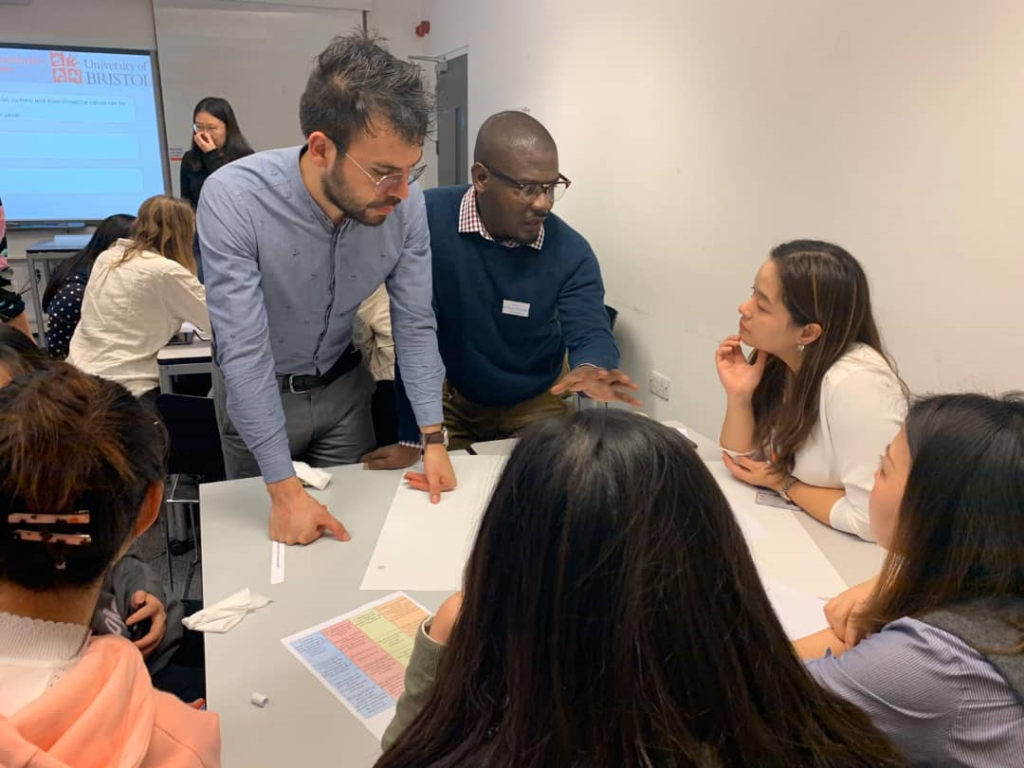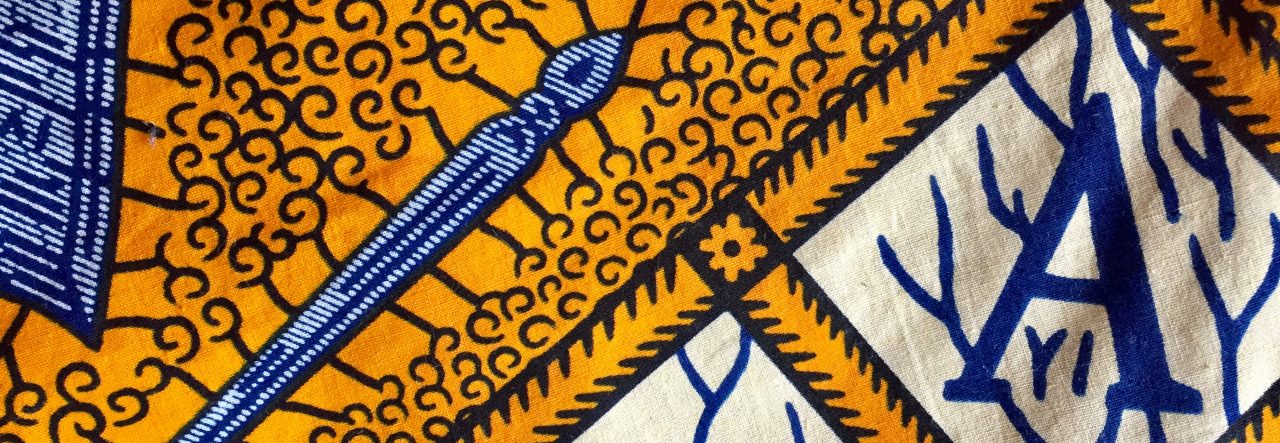Grace Davies, our Masters student reflects on the International Development and Comparative Research in Education (IDCRE) student conference held in December.

Education and technology
The day started with two talks based on the idea of technology and how this will shape the future of education. Firstly, two students from our cohort Emma and Sherry gave a presentation on the application of education in remote areas of China. The talk focused on how mass migration from rural areas to cities in China has resulted in extremely low pupil numbers in rural schools and the benefit of utilizing technology to tackle this. The talk primarily focused on how internet platforms can be used for online and interactive lessons – which enable students in rural areas to access far more classes.
The second talk in the technology section of the conference was given by Professor Jun Zhao, a Chinese Professor in Northeastern University, Shenyang, China. We were very grateful to have an international perspective into the role of big data and the recent unprecedented changes to privacy as a result, which certainly holds many implications for education.
Our varied educational experiences
As a cohort we are extremely privileged that many of us are international students, this has enabled us to gather a wide range of perspectives on educational futures outside of the UK. To hone in on this theme two students volunteered to give presentations on their own home countries current education situation. Firstly, a presentation by Muassua David ‘The Structure of Educational Opportunities in Mozambique: Who fails, who succeeds?’ Muassua provided a brilliant and personalized overview of the history of education in Mozambique and the challenges faced within inequalities between states. Two key challenges for the future were highlighted; reducing inequality between states and lack of migration of graduates to rural communities. Secondly, Mawada Ahmed gave an enlightening talk on ‘Sudan’s Education Policy Reform: Revolution and New Agendas.’ The talk focused on the impact of the most recent revolution in Sudan and how that might shape Sudan’s educational future based on lessons learned and changes made in previous reforms. Mawada examined the Sustainable Development Goal 4 and how there is very little data for Sudan. Mawada also shared a video created by Unicef to encourage girls in education and acknowledged the lack of awareness it shows to Sudan’s history of gender equality and the wide range of achievement made by women.

Imagining educational futures
After a morning full of great discussion we broke off for lunch, where yet more discussion among peers could occur. During the lunch break we were able to look at posters created by masters and PhD students. After this break we were separated into two groups dependent on our interest. I joined some of my peers in a workshop on alternative education, where we discussed the pros and cons of different education styles. The workshop raised some key questions surrounding whether we should mix age groups of children and how the future of education might look if we were to adopt more alternative schooling methods. Alternatively, the other half of the conference attended a talk given by Arshia Jain, Shamiso Mahari, Driti Prasad from our IDCRE cohort titled ‘Pre-Colonial Education: Using the Past to Understand the Future.’ The talk focused on how we can learn from the past to understand the future of education and how there is value in learning from our experiences within education. The talk took two case studies one of the Khoi-San group in Africa, which was based on environmental education, and the gurukul system in India based on community learning and how we could learn from parts of these experiences.

Decolonizing the education system
The conference now gathered together for a discussion panel from three of our visiting speakers; with Dr Foluke Adebise, Professor Leon Tikly and Aisha Thomas, chaired by our fellow student Ugbaad Aidid. The panel focused on how we can decolonize the curriculum. The discussion was extremely insightful and opened many avenues for debate and mixed perspectives from our three guest speakers and the conference audience. One key point raised is the emphasis on cultural capital that needs to be made within the curriculum and how this can sometimes become a tick box exercise. It was unanimously agreed among the panel that multicultural education is more important than this and should become a part of everyday dialogue within schools. The role of cultural capital in creating hierarchical culture was also acknowledged and how some cultural backgrounds within education are seen as more valuable.
Keynote

This brings us to the keynote speaker, Professor Carol A. Taylor, whose presentation was titled; “Using New Material Feminism: Rethinking what Matters in Higher Education.” The talk focuses on “the challenges of new material feminism and the possibilities it opens for doing higher education research differently.” (C A. Taylor,2019). We were extremely grateful to have Professor Taylor share her expertise with us and she gave an enlightening talk on her concept of ‘edu-crafting’ (Taylor, 2016, 2018) and the role of feminism in mixed methodologies. Taylor also illuminated on classroom practices and how they perpetuate gender roles and our position as educators to tackle this. The talk ended with the question of how we could incorporate feminism into our own research practice and work whether that be in classrooms or within policy. In terms of the future of education what was apparent from this talk is the need to ask more questions regarding gendered notions within education practice and research.
Alternative education models
The final talk of the day came all the way from Canada with the second of our international speakers Matt Hern who discussed youth empowerment in alternative education and how alternative education can be used as a method to tackle inequality. This presentation linked in well with the alternative education workshop and allowed more conversation to develop around a differing models of educational futures and the increasing need for more schooling options to meet the needs of today’s society. Hern ended his talk with the poignant question: “What would an institution look like if students felt that what they thought was important?” Something I felt left us all with something to consider in terms of our own future in education and working within this sector.
Wrap up
The day was a huge success and enabled us to reflect upon our place within education and how education might look in years to come. Hosting this conference provided us with ample opportunity for collaboration and the day really showcased the hard work of every student who took part. Speaking on behalf of myself and other students from my cohort the experience was invaluable, and we are very proud of the discussions and collaborations generated as a result of the day. The objective for the conference was; “to facilitate interactive discussion and debate around our chosen topics, enabling students and academics to share their expertise and network with those both within and outside the University.” I believe the conference showcased just this.
Acknowledgements
I would like to personally thank everyone who attended and took part in the day and make special acknowledgement to certain individuals for their contributions. Firstly to all our visiting speakers: Professor Jun Zhao, Dr. Foluke Adebise, Professor Leon Tikly, Aisha Thomas, Professor Carol Taylor and Matt Hern. Secondly to all of our student speakers: Emily, Paloma, Emma, Sherry, Song, Muassua, Mawada, Arshia, Shamiso, Driti , Ugbaad and also a special thanks to Angelika who coordinated our key note speaker and many aspects of the day. The photographs of the day were taken by Ali Ahmed and Yan Lee. Furthermore, we would all like to thank the Education department for funding the event and our lecturers, Laura Hankin, Julia Paulson and Rafael Mitchell.
References
J Muassua, B David and João Carlos Colaço, 2018. Estrutura de Opportunidades Educacionais em Moçambique. Publifix Editions: Maputo, Mozambique.
Taylor, C.A, 2013. ‘Objects bodies and space. Gender and embodied practices of mattering in the classroom.’ Gender and Education, 25 (6) 688-703.
Taylor, C.A and Gannon, S, 2018. ‘Doing time and motion diffractively: Academic life everywhere and all the time.’ Qualitative Studies in Education, 31 (6) 465-486.
UNESCO, 2019. Sustainable Development Goal 4 (Online) Available at : https://sustainabledevelopment.un.org/sdg4.
